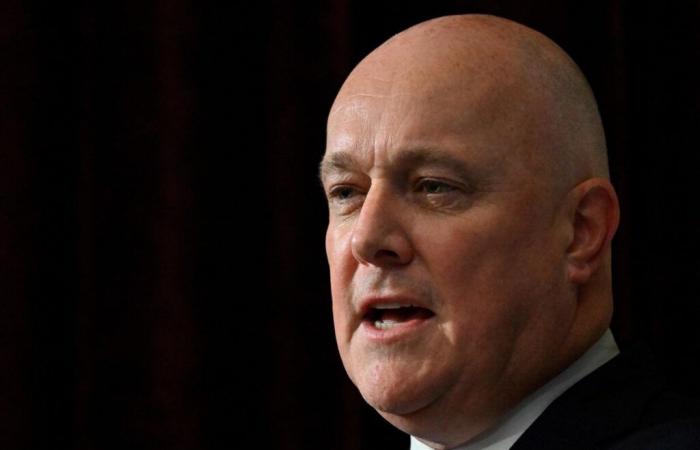New Zealand –
Wellington asks for forgiveness for violence in hospitals
Around 200,000 New Zealanders have suffered violence while in state care in psychiatric homes and hospitals.
Published today at 4:25 a.m.
New Zealand Prime Minister Christopher Luxon, in Australia on August 15, 2024.
AFP
Subscribe now and enjoy the audio playback feature.
BotTalk
New Zealand’s Prime Minister on Tuesday asked for forgiveness from the hundreds of thousands of people who were victims of violence while in state care, and acknowledged the “unimaginable suffering” caused in children’s homes and psychiatric hospitals.
Some 200,000 New Zealanders in a vulnerable position suffered this violence from the 1950s, according to a public inquiry, released in July, which described the phenomenon as “an unimaginable national catastrophe”.
Church caregivers sexually assaulted children, mothers were forced to give their children up for adoption, and patients deemed distressing underwent electroshock treatments while tied to their beds.
“I’m sorry”
Christopher Luxon, the head of New Zealand’s government, apologized on Tuesday on behalf of successive governments having turned a blind eye to these events. “I am sorry that no one believed you when you came to report” this violence, declared the leader in front of his country’s Parliament.
“Some of you may think that my words are not worth much after so much time and suffering. But I hope that today, with this apology and recognition of your burden, (it) will become a little lighter for some of you,” said Christopher Luxon.
The Prime Minister cited the case of the Lake Alice psychiatric hospital, located in the rural North, the scene of sterilizations without the victims’ knowledge, unethical medical experiments and punishments by electroshock. “To those of you who were tortured at Lake Alice – young, alone, and subject to unimaginable suffering – I am deeply sorry.”
Racism towards the Māori people
Many victims have reported persistent trauma that may have led to addiction problems. According to the findings of the investigation, some of this violence was mixed with racism against the indigenous Maori people.
“Once taken into care, Maori survivors experienced harsher treatment” than others, Arrun Soma, principal consultant for these investigations, indicated in July. This work launched in 2018 issued 233 recommendations which the Prime Minister promised to examine.
“Latest news”
Want to stay on top of the news? “24 Heures” offers you two appointments per day, directly in your email box. So you don’t miss anything that’s happening in your Canton, in Switzerland or around the world.
Other newsletters
Log in
AFP
Did you find an error? Please report it to us.
2 comments






